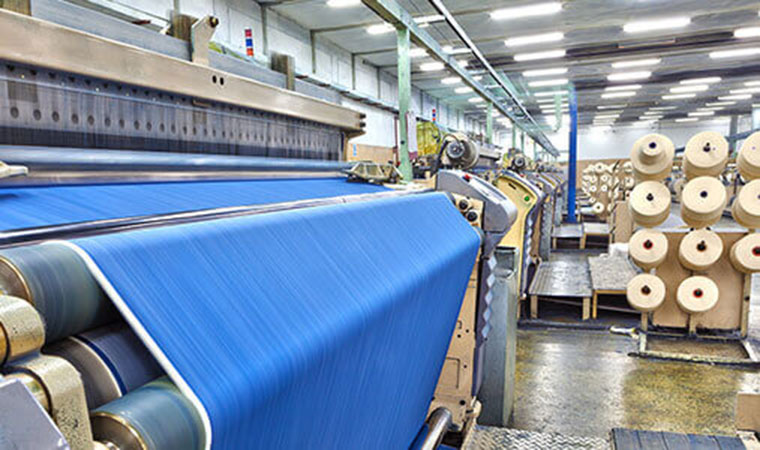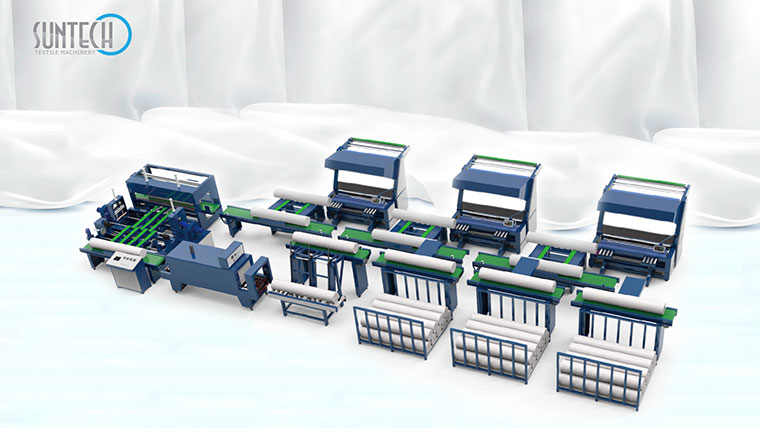Impact of Automatic Textile Industry
Textile industry is one of the biggest global industry with billions of people involved. Automation development makes this industry undergoing a big change. For example, automatic loom reduce the number of workers involved in production, thus textile products have been made much easier in higher quality. In this article, more impact of automatic textile industry will be discussed.
Introduction
Textile Industry
Textile industry has always been a staple of people’s lives since it born. During industrial revolution in the 18th and 19th centuries, when new manufacturing process took place, the textile industry developed a lot. During that time, there were high demand for textiles. And with the help of textile factories, manufacturers and merchants could meet market needs. As time goes by, textile industry experienced many changes.
Automation
Due to advent of automation, textile industry, that has been developed for centuries, is facing a great change. Automation is defined as increase production capacity by using smart equipment and machinery. Thanks to automatic machines, fabrics such as cloth, yarn and so on are much easier to be produced.

Imapact of Automatic Textile Industry
Higher Product Quality
It is known that high product quality is most important to an industry, so does the textile industry. There may be various reasons to make errors when produced by workers. For example, they may not in mood, they have personal issues and so on. But less mistakes occur when working by automatic machine, thus the quality of product can be improved.
More Production In Less Time
We know that machines would never get tired and they can work non-stop while workers must have a break after working long time. In addition, it’s possible to produce more using automatic machines at one time than workers and other traditional machines. In this term, factories using automatic machines can produce more high quality products in less time.
Reduce Working Hours
Traditional textile industry mainly rely on labor working, so it cost time greatly. But using intelligent machines, what need to do is just to press an button and then the whole process will be automatic. As a result, it is possible to reduce working hours for the same product.
Low labor Wages
As mentioned before, automatic machine will simplify the whole process of production, so there are less workers needed in different stage. And the amount of labor wages will be reduced.
Safer Working Conditions
It’s relatively dangerous for workers in some process like dyeing and spinning in textile industry previously. On the contrast, automatic machines replace works to handle most of the process, thus they provide workers a safe working environment.
SUNTECH Automatic Fabric Inspection and Packing Line
SUNTECH is a world-wide acting enterprise with decades of tradition and experience. For more than 50 years, SUNTECH devotes to develop and produce high quality fabric machines, material storage and handling equipment, on the basis of digitization, automation and intelligence. Furthermore, we offer specialized service to customers’ requirements.
Fabric inspection and packing line is one of the most popular lines in the global market. It is designed for automatic operation and combined with the state of art technology.

Features
1. Camera inspecting.
At the speed of 80 m/min, it can seek defect for a minimum of 0.15mm. And it works for 24 hours a day with software recording.
2. Fully automatic
Automatic liner cutting, taping, labeling, vacuum packing and stacking. So only one operator is enough, which extremely reduce labor cost and improve production capacity.
3. Smart classifying
Fabric rolls can be sorted after packing with smart classification function, which make overall management and control easier.
SUNTECH devotes to provide high-quality product and professional service to global customers. We spare no efforts to satisfy all the customers. We are always ready to offer you excellent products and service. Welcome to contact us or visit our website to get more information.




